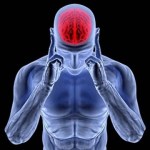“Everyone is going through something that we can’t see. The thing is because we can’t see it, we don’t know who’s going through what, and we don’t know when and we don’t always know why. Mental health is an invisible thing, but it touches all of us at some point or another. It’s part of life.” -Kevin Love
 Conversations about mental health are usually frowned upon in today’s society. There’s always a dismissive air whenever the topic arises (even in the sports community), probably because we perceive it as a sign of weakness.
Conversations about mental health are usually frowned upon in today’s society. There’s always a dismissive air whenever the topic arises (even in the sports community), probably because we perceive it as a sign of weakness.
Unfortunately, most people don’t realize that everyone needs to take care of their mental health. It is a critical part of our daily lives that requires our undivided attention.
Our thoughts, associations, current circumstances, and behaviors significantly impact our performance and self-image.
The issue is just as crucial for high-performing athletes like basketball players.
While playing through a season that has lots of travel, players’ daily routines are altered.
At the same time, their bodies have had to endure an unpredictable game schedule.
The physical effects of this receive lots of media attention. But, very little has been said about the overlooked aspect of players’ well-being and their mental health.
Athletes may perform extraordinary feats, but they’re still human in the end.
In fact, they’re more likely to struggle with mental health than ordinary people because of the intense demands of their respective sports.
Mental Health Tips
Sports psychology for basketball has revealed important truths about the relationship between performance and mental health.
It may seem impossible to play through times of adversity; however, athletes can survive and thrive when they take care of their mental health first.
Learn What Stresses You
The more you understand your triggers, the better you will be at preventing them from damaging your performance.
Pay close attention to the experiences, situations, or events that increase your stress or trigger other mental health symptoms like depression and anxiety.
Depressive symptoms aren’t hard to find if you know what to look for. They may arise after a competitive failure, losing a loved one, serious illness, or injury. They can also start after positive events like participating in the Olympics or receiving national recognition. The most common signs are sadness, sleep changes, and irritability.
These symptoms need to be addressed. If it continues, talk to a close friend or a professional. This can bring you hope and relief.
Be Positive
Although positivity cannot prevent all mental health problems, it will limit your risk of developing anxiety and depression.
Focusing on the good things in your life means you’ll spend less time thinking of unpleasant thoughts. It will help you healthily cope with stress and improve your basketball mental toughness.
Positive thinking is one of the best mental skills for coping with adversity (performance anxiety, injury, and so on). It helps you make a more favorable judgment of the situation and your ability to handle it.
Take care of yourself
Self-care is a crucial part of mental well-being. Part of your job as an athlete is to push the limits of what’s possible. However, anyone will tell you; it’s a quick way to wear yourself down. You should know your limits and establish an effective self-care routine. That involves getting enough time to sleep and setting time aside to enjoy yourself.
Don’t be afraid to ask for help
The truth is we all need help sometimes, and it is ok not to be ok.
If you are struggling with mental health issues, reach out to me at dr.dcoffey@gmail.com.
